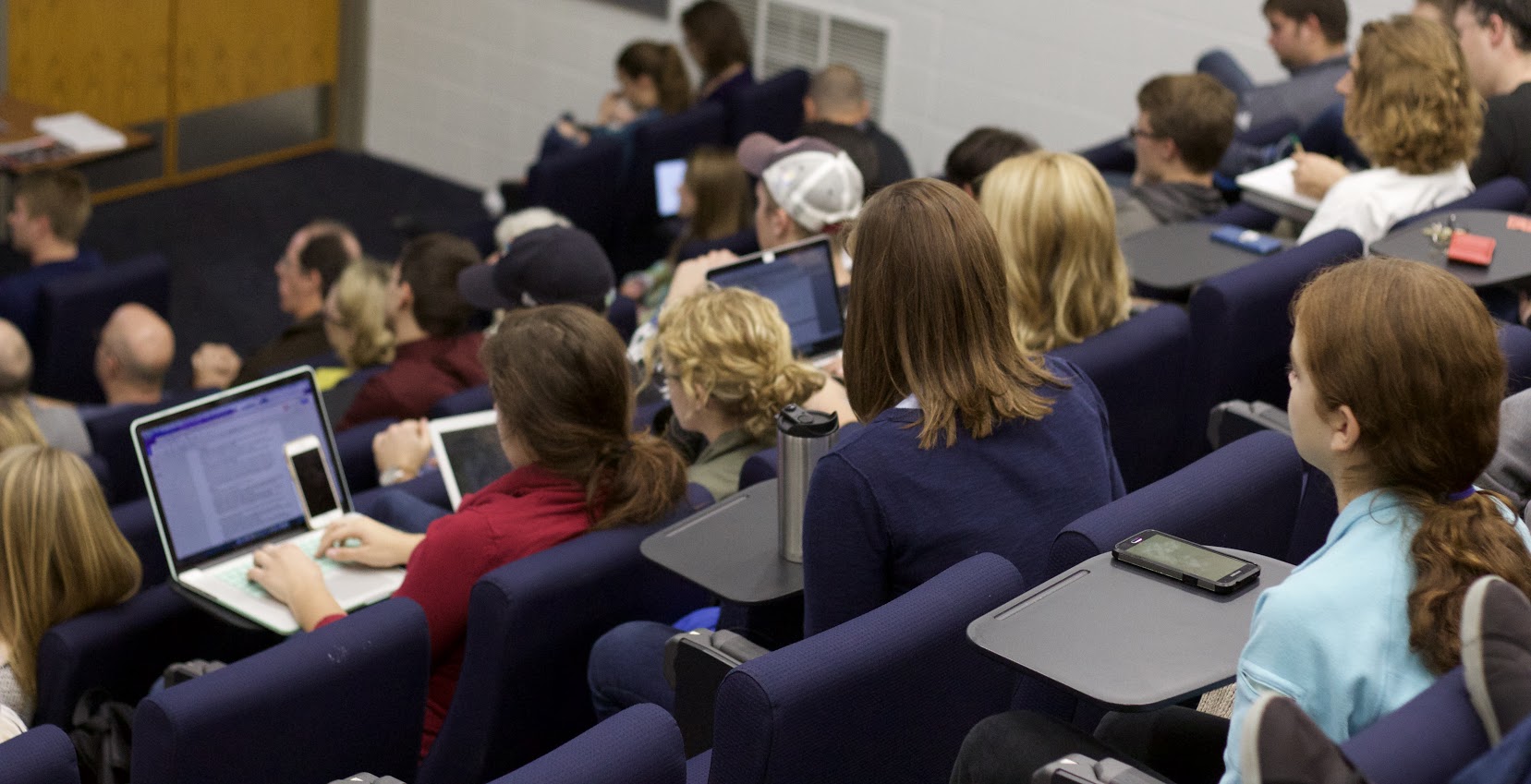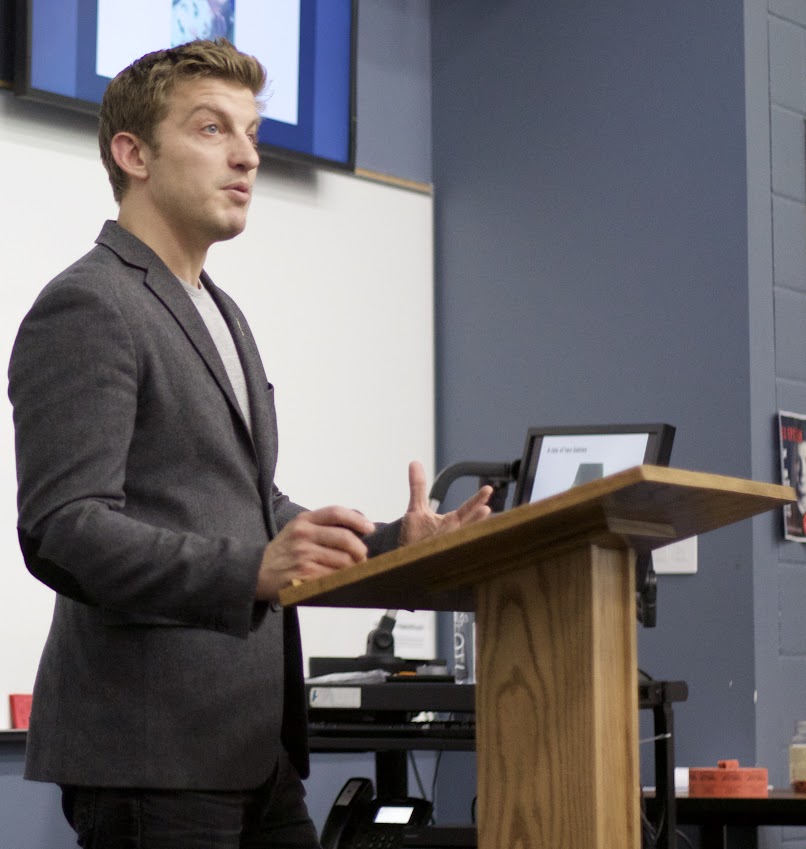Bethel students and faculty respond to Alex Epstein’s unexplored argument.
McKenzie Van Loh | Sports Editor
Posters tacked across Bethel’s campus advertised an event taking place Oct. 17 called “The Moral Case For Fossil Fuels,” an educational session on fossil fuels presented by Alex Epstein, a writer who specializes in the topic of energy. The posters stirred controversy across Bethel’s campus in the days preceding the event. The event was hosted by Bethel College Republicans.
“Last year we had RepublicEn, who are Republicans who accept climate change and want to do something about it, so I thought it would be cool to have another speaker come in with another way to look at it,” sophomore Sam Krueger said. Krueger, President of Bethel College Republicans, was contacted by The Coalition for the Secure Energy Future (CSEF) in regards to the event.
“CSEF had come in last year to talk about a diverse energy portfolio and so he got in contact with me and we set it up,” he said.
Krueger did not speak to Epstein until five minutes before the event. The event was largely set up by CSEF and Epstein’s secretary. According to Krueger, Bethel College Republicans did not pay Epstein.

“I went to the (event) because I was relatively certain that I would disagree with some of the points, and I wanted to hear from a counter argument because I think it is really important to not get stuck in an echo chamber of your own opinions,” senior Jessica Arend said. Arend is a member of the Bethel College Democrats.
According to Epstein, over a billion people around the world have no electricity. He described this circumstance as energy poverty, and questioned why nobody has called attention to this issue. Without energy, Epstein argued, societies cannot function to their highest potential. Epstein later proclaimed that nature is not our friend due to storms and climate-related deaths. Therefore, as we have used more fossil fuels, these deaths have significantly dropped. One of Epstein’s arguments was that instead of striving for minimal environmental impact, society should pursue “maximum human flourishing.”
“He tried to turn the argument against fossil fuels into an anti-human argument, arguing that when we deprive people of fossil fuels, we are impacting the poorest of the poor, so to speak, because they don’t have access to resources that are necessary for everyday life,” Arend said. “Overall I was rather shocked by his assertiveness without considering all the implications of his arguments.”
His assertiveness did not go unnoticed by biblical and theological studies professor Jim Beilby either.
“In the final analysis, I think it’s hard to assess the quality of his arguments because, even if there were some things that caused people to think, I think that is going to get lost in the dismissive, condescending (and) pretentious way he engaged some of the questions,” Beilby said.
Despite the shock from a number of people in the audience, Krueger found himself pleased with the discussion.
“I thought it went fairly well. He was very strong when people asked him questions. He might have been a little too harsh and I totally acknowledge that, but he’s very good at what he’s doing,” Krueger said. “He had a very well-formulated argument for a side of the topic that never gets discussed.”
Parts of Epstein’s argument caused alarm within the audience, but the content provided a unique view on the topic.
“It’s definitely true that the world’s people do not have equal access to energy resources,” biology professor and environmental studies director Ken Petersen said. He disagreed with the argument Epstein made about human flourishing through fossil fuels. “He must have a different understanding of flourishing. It does take energy to do things and for people to be healthy, but to suggest that fossil fuels are the only way to do that … I don’t follow.”
Junior Peter Knutson, a student who affiliates with Bethel College Republicans, holds a different view.
“Fossil fuels are a clean and abundant energy that we need to use and have been proven to… increased the well being of humans over time,” Knutson said. “I think we should continue to develop cleaner energy solutions. At the same time, we should use what we have in order to improve our lives as humans.”
At the close of the event, Epstein handed out pins that read “I Heart Fossil Fuels.” Students and faculty had time to reflect on what they heard in the presentation.
“I was happy a lot of people came. A lot of people discounted him right away. Though he may have been a little misguided in some ways, the pro-human argument is super important and is at least something that we should take into account when we look at climate change,” Krueger said.

![Nelson Hall Resident Director Kendall Engelke Davis looks over to see what Resident Assistant Chloe Smith paints. For her weekly 8 p.m. staff development meeting in Nelson Shack April 16, Engelke Davis held a watercolor event to relieve stress. “It’s a unique opportunity to get to really invest and be in [RAs’] lives,” Engelke Davis said, “which I consider such a privilege.”](http://thebuclarion.com/wp-content/uploads/2024/05/041624_KendallEngelkeDavis_Holland_05-1200x800.jpg)















